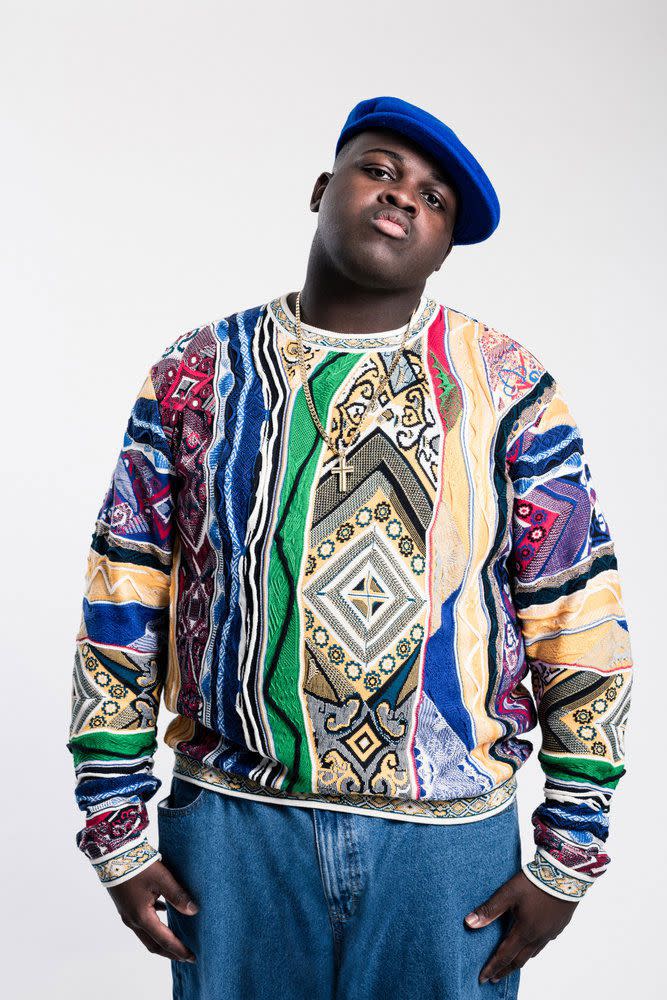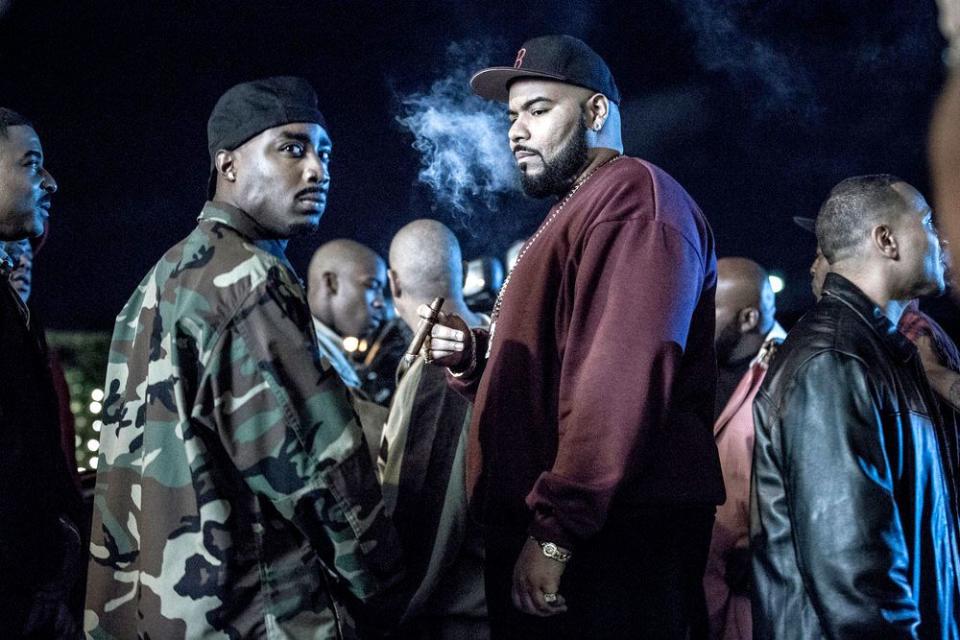Netflix's Unsolved takes on hip-hop's BIGgest mystery

Meet Unsolved, a new anthology series from USA Network (showing on Netflix in the UKL) detailing semi-fictionalised – believe it or not – unsolved crimes. Its first season takes on the murders of Christopher Wallace, aka Biggie Smalls, aka Notorious BIG, and Tupac Shakur, with its very first episode introducing viewers to three eras of a case covered in a web of pushpins and red string.
We begin in 2007 with Josh Duhamel's Detective Greg Kading re-opening the case under the premise that Voletta Wallace – Biggie's mum – believes that the police were involved in the murder of her son and is suing them for a potential $400 million.
Then there's the 1997 thread, which follows Westworld's Jimmi Simpson and Jamie McShane as Detectives Russell Poole and Fred Miller, assigned to the Biggie case a month after his murder. The third time frame is 1993, where we see the first meeting between Biggie and Tupac, the start of burgeoning friendship and ultimate rivalry.

Starting with the headliners, Biggie and Tupac: we really don't see much of them or explore their stories in this first episode. Because what we're shown are small vignettes, the sections they feature in feel like interruptions.None of the three threads feel like they fit together because of tone, performances and purpose but Biggie and Tupac receive the worst of it. This is a shame because Wavyy Jonez (Biggie) and Marcc Rose (Tupac) strike an almost spooky resemblance to the rap legends – a stronger concentration on their relationship might have given the show a better focus.

Duhamel's arc is also unrewarding. So is his acting. His character isn't intriguing or nuanced, and his goal – to pull together his investigation team – doesn't really generate any tension or give us any helpful exposition as to why this case is so important in the first place.
Speaking of exposition, the show is on unsteady ground with what it expects its audience to know going in. There are references to the likes of Johnnie Cochran and Suge Knight, but the show doesn't always tell the viewer what their presence means.
If you didn't already know about the Rodney King riots and OJ trial, the stakes of a celebrity race crime in LA might not be clear – though if you don't know the inner workings of Death Row records, you could probably deduce that Suge Knight is not a nice man.

Thankfully, Jimmi Simpson does a lot of heavy lifting to keep the show on track. The 1997 timeframe feels like a real crime show because we get to see actual detective work. Simpson's character is a thorough and pragmatic by-the-book cop who is an expert on gangs, able to move out of police preconceptions of gangster rap to understand his case.
The root of his dedication is unclear to begin with but just as the audiences ask themselves, "What's this guy's story?" his frustrated partner lets us know.
Simpson's character is the driving force behind the show and his notable absence from the '07 timeline is intriguing. Given that we know the case is unsolved – not only is it the name of the show, a title card at the end of the episode slaps you in the face with it – what keeps us interested is how we get from Simpson's Det. Poole investigating the case in 1997 to Biggie's mum suing the police in 2007.

One unusual aspect of the show is how the murders are presented, at times more like a documentary rather than drama. At one point, during a description of Biggie's shooting, actual footage of the night in question is interspersed with the fictionalised version.
This has the opposite effect than that intended: the courtroom dialogue and level of detail that the characters go into regarding the case leaves you feeling that perhaps this story would have been more compelling as a documentary in the first place.
Add to that, of the six or seven potential lead characters, only Simpson's is substantially developed. Is another nine hours a worthwhile investment? Is it even enough time for the show to adequately deal with its various arcs and characters?
There aren't enough clues, twists or compelling characters in this episode to sink our teeth into – this show is only going to work for fans of Biggie and Tupac, or people who just need more Jimmi Simpson in their lives. Case closed.
You Might Also Like

 Yahoo News
Yahoo News 
